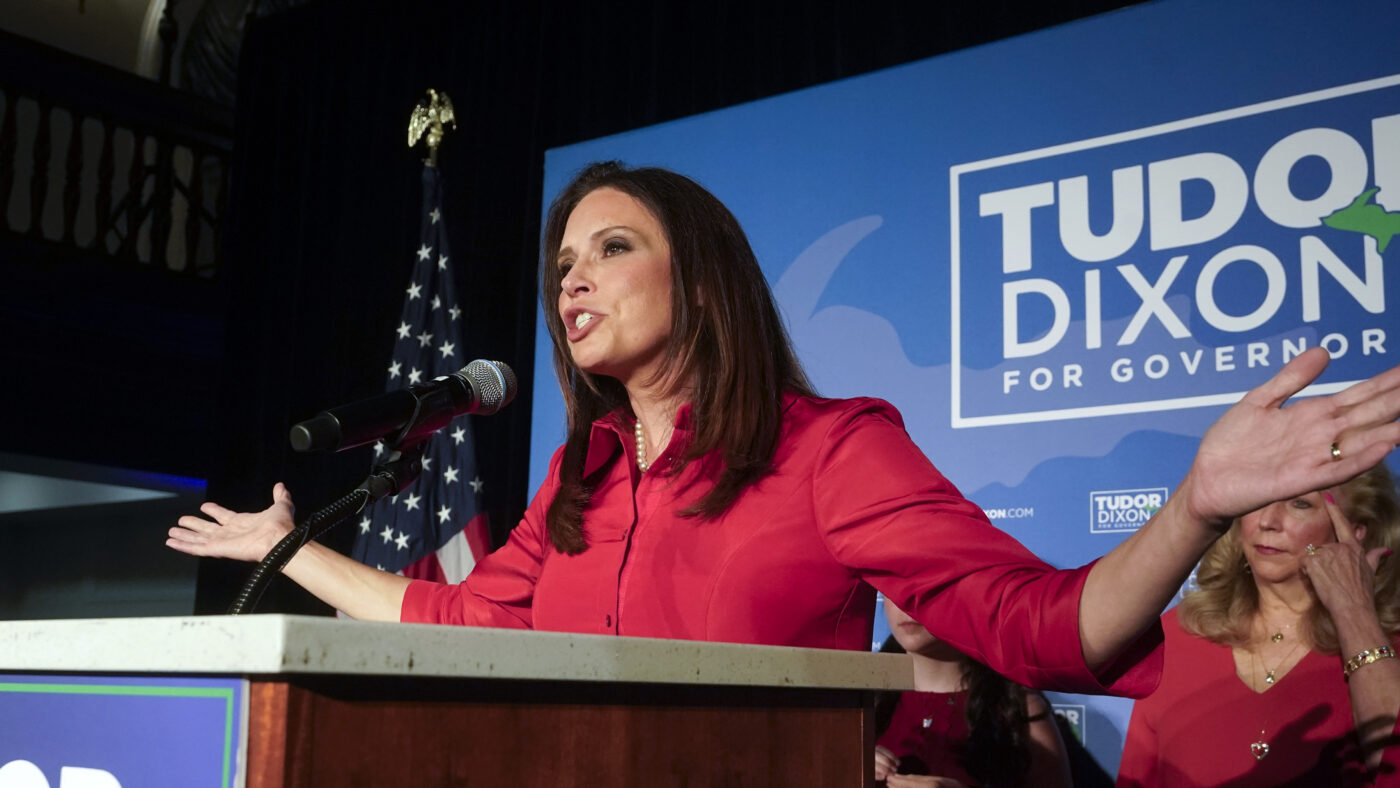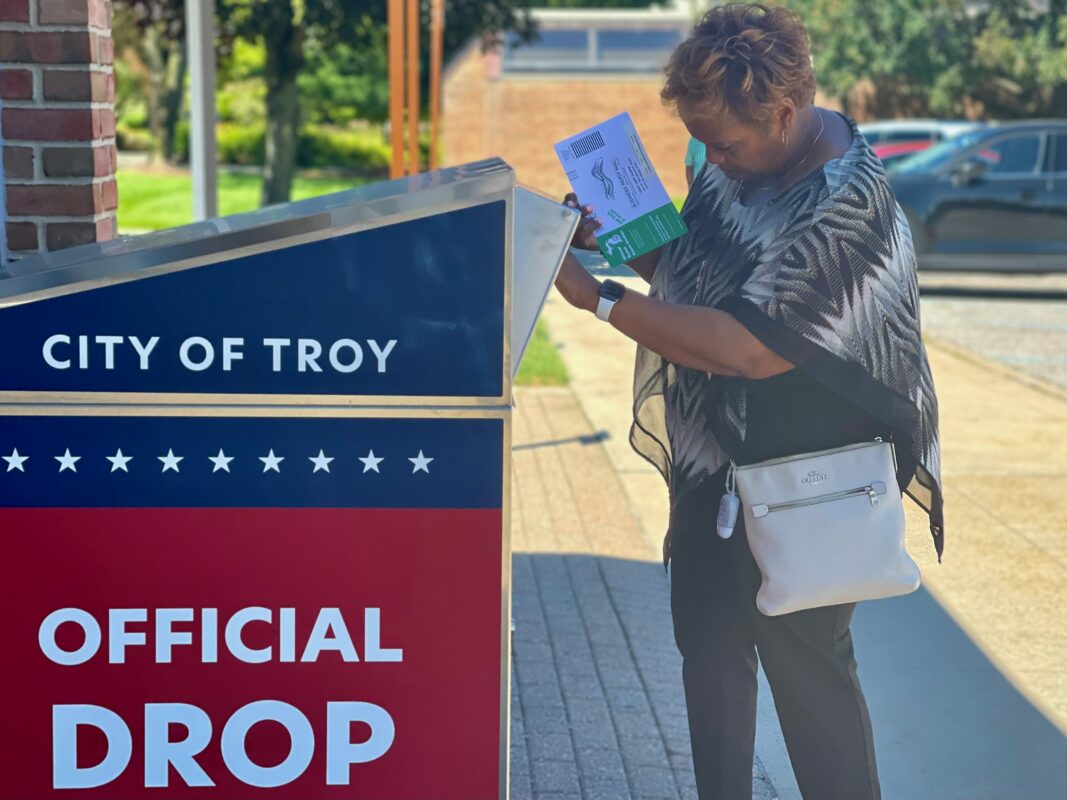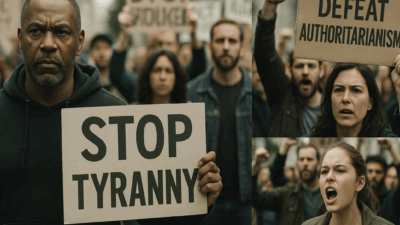DETROIT – Voting isn’t usually a priority for Willy Brown, particularly when it comes to non-presidential cycles.

But Tuesday’s primary was different. The 55-year-old Democrat rode his bicycle to his polling place in Detroit’s West Village historic district and left feeling grateful that he gave in to peer pressure to cast a ballot this time around.
“I don’t vote that often,” Brown said, “but my neighbors and friends have been getting down my throat saying our people fought so we can vote.”
Among his top three concerns: raising the minimum wage, mitigating climate change and – an issue Brown never expected to round out his most urgent political priorities – protecting women’s rights to reproductive health care and abortions.
“If I wasn’t familiar with the candidate, I voted for nothing but women,” said Brown, noting he plans to do more research on each candidate who advances to the general election. “I was surprised that Roe v. Wade was overturned (by the Supreme Court), and I believe women should have that right, I really do.”
Will abortion furor spike turnout?
Across the Rust Belt, Appalachia, and the rest of the nation, threats to ban and criminalize abortions have catapulted a litany of statewide and local races to unprecedented prominence – and the lingering uncertainty over what happens next may be driving more constituents to the polls, recent surveys and early voting figures suggest.
Politicos around the country are eyeing Michigan as a key battleground state, with its primary a bellwether for what’s to come in November.
“Abortion access is the most important to me,” Carol Goss, 74, said shortly after casting her Democratic primary ballot at Marcus Garvey Academy in southeastern Detroit. “We have to think about who we’re electing and whether or not they support that.”
Her husband, Tom Goss, chimed in: “To have it be so confusing, and to have somebody – especially men – saying that you can’t do this with your body, it’s ridiculous.”
Nationally, 6 in 10 women registered voters between ages 18 and 49 said in July that they are “more motivated” to vote in the midterm election because of the Supreme Court’s ruling regarding abortion, a Kaiser Family Foundationsurvey found. Of those more-motivated voters, 88% said they planned to vote for candidates who will protect abortion access.
Jean Weiderman, 84, a longtime resident of Troy, a suburb about 24 miles north of Detroit, identifies as a major concern border security and enforcing stricter requirements on immigrants – and she says she’s supported many Republicans in recent years. But she’s also voted for Democrats in prior decades – and she says that she would likely vote against a Republican who supports outright abortion bans.
“I don’t believe in abortion, but I do believe that a woman has that right to choose, she should have a choice,” Weiderman said.

Michigan conservative commentator Tudor Dixon won her GOP gubernatorial primary. Dixon was endorsed by both former President Donald Trump as well as Betsy DeVos, a member of a prominent, wealthy Michigan family and Trump’s former education secretary who resigned shortly after the Jan. 6 Capitol coup attempt.
Tuesday marked a busy day in the 2022 election cycle, with primaries held not only in Michigan but also Arizona, Missouri, Kansas and Washington. In Kansas, voters weighed in on whether to amend the state constitution by declaring there is no right to abortion.
Michiganders will have a chance in November to vote on a ballot measure to do just the opposite: enshrine abortion rights in the state constitution. The night before the primary, Gov. Gretchen Whitmer, a Democrat, filed a restraining order in an effort to halt local prosecutors from attempting to enforce a 1931 law while legal challenges play out.
All five GOP contenders who were vying to face off against Whitmer have said they support the 1931 ban.
“The good news is none of them have a chance, I think, to beat our governor,” said Goss, a longtime Democrat. “But they will if people don’t vote.”
A June survey by Pew Research Center found that nearly 1 in 4 voters nationwide – including 54% of Republicans – favor laws to ban abortion.
Several Republicans voting in person in Detroit’s northern and western suburbs said they were happy to support candidates who were “pro-life” like they are.
“That’s a really tough issue. But the unborn child should have some rights, too,” said Warren Williams, 52, of Troy. “But in the case of rape or incest, I do think maybe exceptions should be allowed.
Michiganders will have a chance in November to vote on a ballot measure to do just the opposite: enshrine abortion rights in the state constitution.
“Surprisingly, most of the (GOP) candidates are (saying) even if there’s rape it should still not be allowed …. I feel like that’s the one exception … Otherwise, I am pro-life because that’s the way I was raised.”
More than two dozen Democrats who voted in the greater Detroit area told Postindustrial that abortion rights were a top concern, from 23-year-old Priscilla Lloyd to 65-year-old Bridges Lenderrick.
“I’m pro-choice, I’m not pro-abortion. But it could be a real big snowball effect,” said Lenderrick, a retired airline industry worker. “It could be LGBT issues next, it could be medication access – because some medications, especially for us older people, can induce abortion.”
Lenderrick, who got a free ride to his polling place in southeastern Detroit thanks to a volunteer shuttle service provided by Stoudemire Wellness Hub, part of the Eastside Community Network, also is wary of voter ID laws, false claims about voter fraud, and other GOP-led efforts he fears could disenfranchise voters.
Richard Czuba, president of the Glengariff Group Inc. polling firm, said that the abortion issue “has provided a jolt of motivation to Democratic voters while Republican voters remain highly motivated by their inflation concerns.”
“A key to 2022 will be how these two different issues intersect among independent voters,” Czuba said.
Will Trump’s picks win?
Former President Donald Trump endorsed at least 11 of Michigan’s state legislative candidates – more than he’s backed in any other state, the Washington Post reports.
Trump and most of the candidates he supports continue to falsely claim he won the 2020 election in Michigan, despite losing to Joe Biden statewide by more than 150,000 votes and no widespread evidence of voter fraud.
“I’ll be watching the returns tonight from Michigan wanting to see what direction our state seems to be going,” said Margo Gorchow, 74, a Democratic retired nurse and community health care worker, said Tuesday.
Turmoil is also afoot within the Republican party. Several candidates endorsed by Trump issued a public letter in which they described “a war going on for the soul of the GOP in Michigan with Trump-endorsed candidates on one side and the establishment (Betsy) DeVos family on the other.”
Trump’s eleventh-hour endorsement of conservative media personality Tudor Dixon for governor further muddied the waters, with some Trump supporters displeased by the pick and others supporting Dixon reluctantly.
“(Trump) only influenced my decision in the sense that I didn’t want to completely throw away my vote for one of the other candidates,” said Williams, a Troy Republican. “At some point you have to get behind the so-called frontrunner, even if you don’t agree with everything that they say. I thought she might have the best chance.
“And I hate to say it, but because she’s a woman, I think she has a better chance going up against Whitmer.”

Republican Steve Esshaki, a retired automotive engineer of Troy, declined to say who he chose for governor on the primary ballot.
“I like President Trump, but I vote for who I want,” Esshaki said. “I make up my mind after I read about their agenda, and that’s what everybody should do.”
Like a majority of Americans on recent surveys, Esshaki said he’s by far most concerned about the economy, including inflation, and gas prices, along with tamping down on crime.
“I’m a senior citizen, so right now the inflation is killing us,” said Esshaki, noting that the recent dips in fuel prices haven’t done enough to improve the situation.”How can I be happy when it went up $3 and down $1?”
As for whether he’d support Trump in a presidential bid in 2024, he says, “I’ll have to see. I’m open to it.”
More than 1.3 million absentee ballots had been requested by midday, according to Department of State Chief External Officer Jake Rollow. He expected at least half and up to two-thirds of voters to cast absentee ballots by the time polls closed at 8 p.m.
Despite his own best recruiting efforts, Lenderrick said he’s not sure that Michiganders will shatter turnout records this season.
“I’ve tried to encourage people to vote this midterm, and a lot of them are not receptive to it,” Bridges said. “I would love to see more people come out to vote.”
State elections officials anticipate that most counting should be completed by early Wednesday, though tabulating the results of very close races with a large number of absentee ballots could take a few days.







